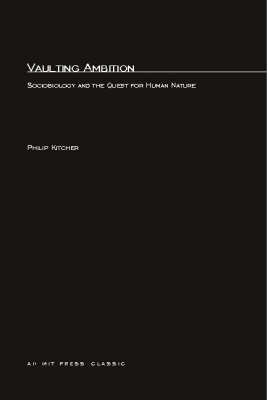MIT Press
2 total works
Not long ago, a federal court struck down an Arkansas law requiring that "scientific" Creationism be taught in high school science classes. Contemporary Creationists may have lost one legal battle, but their cause continues to thrive. Their efforts are directed not only at state legislatures but at local school boards and textbook publishers. As Kitcher argues in this rigorous but highly readable book, the integrity of science is under attack. The methods of inquiry used in evolutionary biology are those which are used throughout the sciences. Moreover, modern biology is intertwined with other fields of science—physics, chemistry, astronomy, and geology. Creationists hope to persuade the public that education in science should be torn apart to make room for a literal reading of Genesis.
Abusing Science refutes the popular complaint that the scientific establishment is dogmatic and intolerant, denying "academic freedom" to the unorthodox. It examines Creationist claims seriously and systematically, one by one, showing clearly just why they are at best misguided, at worst ludicrous.

